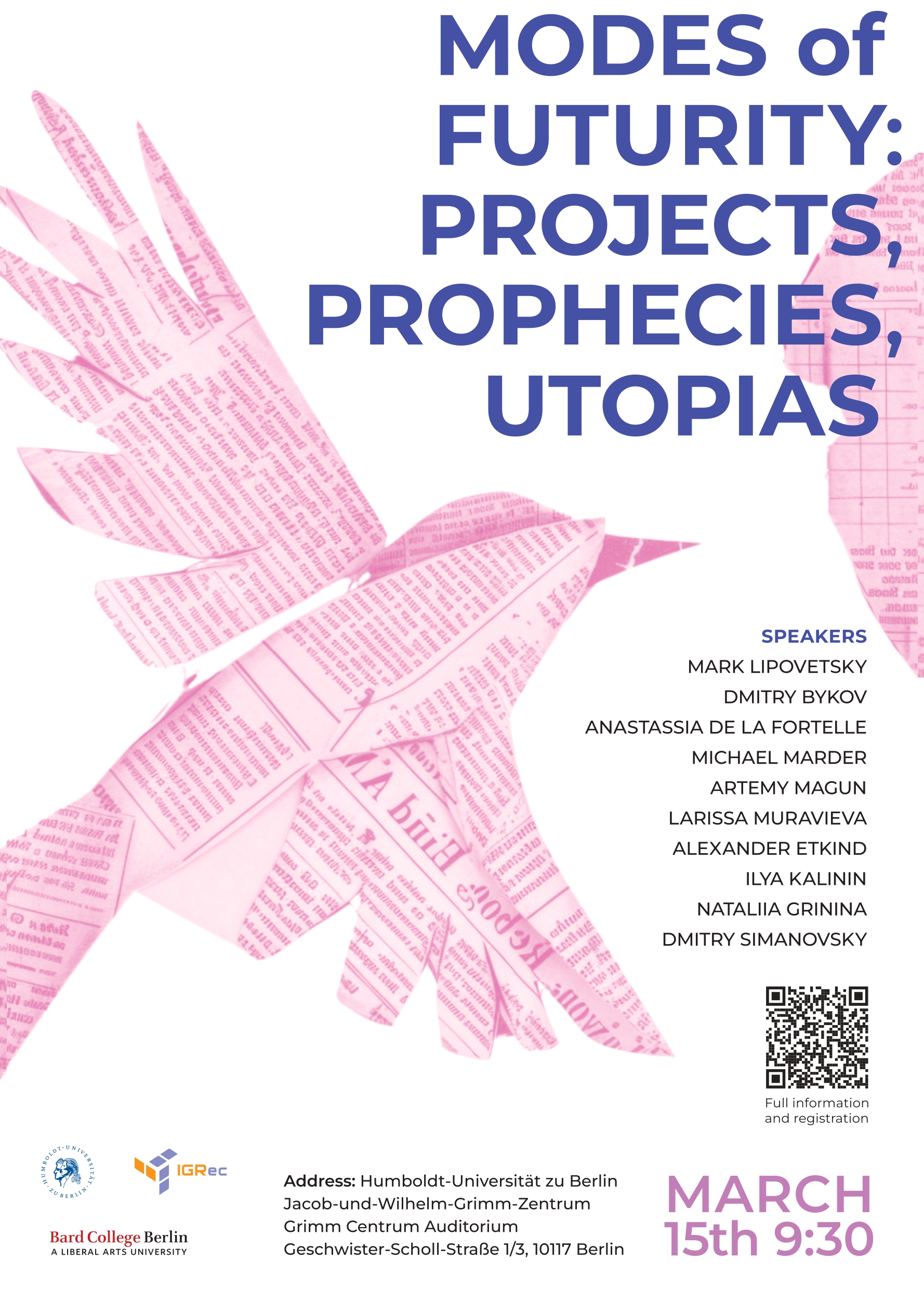
Modes of Futurity: Projects, Prophecies, Utopias
Saturday, March 15, 2025
Humboldt-Universität zu Berlin Jacob-und-Wilhelm-Grimm-Zentrum Auditorium (Geschwister-Scholl-Straße 1/3, 10117 Berlin)
9:30 am – 6:45 pm CET/GMT+1
How do we project and conceive the future? The recent turns of history have been unexpected for many. Contemporary Russia’s gradual transformation from a liberal democratic regime into a conservative tyranny was not inevitable and was not evident in the making. It is therefore striking that in the 2000s and 2010s, some Russian writers accurately anticipated the present turn to war and despotic rule. Novels by Viktor Pelevin, Vladimir Sorokin, and Dmitry Bykov described the future metaphorically but more precisely than “scientific” predictions did.9:30 am – 6:45 pm CET/GMT+1
In the Modes of Futurity conference, co-organized by Institut für Slawistik und Hungarologie of Humboldt-Universität zu Berlin and the Institute for Global Reconstitution, we are interested in the unbounded social imagination that comes from all genres of arts and sciences, including reaching out beyond academia for creative plotlines designed by writers, with a specific focus on contemporary Russian literature and arts. The conference will discuss the many theoretical and empirical questions arising from this experience: What is the mechanism of literary prophecy? How do we the readers set apart predictions that are most likely to be accurate from the many failed ones? Can there be an element of self-fulfilling prophecy, not necessarily in the anti-utopian novels as such, but in the collective imaginary they rely on? How does the literary imagination relate to the scholarly projects and scenarios produced in the last decades? Can there be an alliance between intellectual projects and fictional writing? Is there a way to use these visions to avert the worst of these unexpected historical turns? Is there currently a space for utopian rather than anti-utopian fiction?
Please register here.
Speakers:
Ilya Kalinin (Humboldt-Universität zu Berlin / IGRec), Mark Lipovetsky (Columbia University), Anastassia de La Fortelle (University of Lausanne), Dmitry Simanovsky (Editor-in-Chief for Überbau), Larissa Muravieva (Smolny Beyond Borders), Michael Marder (The University of the Basque Country / IGRec), Dmitry Bykov (University of Rochester), Alexander Etkind (Central European University), Natalia Grinina (Humboldt-Universität zu Berlin), Artemy Magun (Institute for Global Reconstitution)
For more information, e-mail [email protected].
Time: 9:30 am – 6:45 pm CET/GMT+1
Location: Humboldt-Universität zu Berlin Jacob-und-Wilhelm-Grimm-Zentrum Auditorium (Geschwister-Scholl-Straße 1/3, 10117 Berlin)